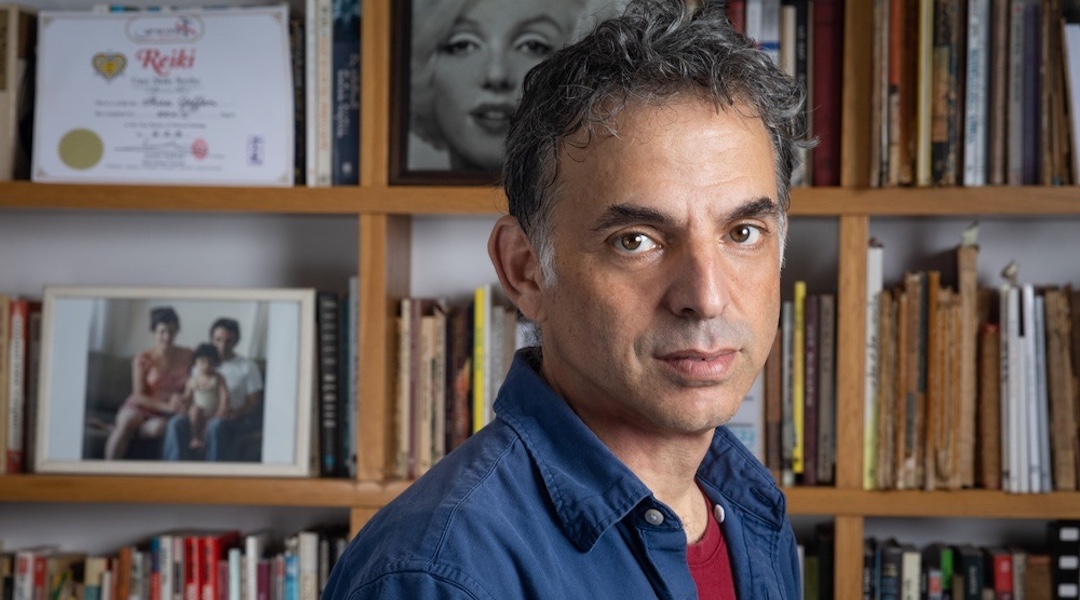The Jewish Theological Seminary, best known for training Conservative rabbis as well as Judaic scholars and communal workers, hopes to raise a new kind of crop: Jewish fiction writers.
The Manhattan seminary is launching a new Master’s in Fine Arts in Creative Writing, a two-year, low-residency program to be directed by the prize-winning Israeli author Etgar Keret and with a stable of acclaimed Jewish writers.
JTS Chancellor Shuly Rubin Schwartz said she heard from some of those authors that an MFA at a Jewish institution could give a home to Jews who, since Oct. 7, 2023, see the publishing world as increasingly inhospitable to Jewish themes and writers. JTS was already well into its accreditation process with the state, she said, when reports of cancelled bookstore appearances, calls for a boycott of Israeli literary institutions and a blacklist of “Zionist” authors began circulating.
“We’re living in an era where Jewish writers are having a hard time getting into writers’ programs, getting published even. And if they do get into a program they are reticent to do so and they’re not sure how [their writing] will be received,” she said.
The American Jewish novelist Jonathan Safran Foer will serve as the program’s founding advisor. Other “creative advisors” listed by JTS include the novelists Shalom Auslander and Nicole Krauss (who used to be married to Safran Foer), comedian Alex Edelman, “This American Life” creator Ira Glass, actor Liev Schreiber, singer-songwriter Regina Spektor and Deborah Treisman, the fiction editor for The New Yorker.
The advisors reflect Keret’s notion that “storytelling” includes numerous formats, Schwartz said.
“If you want to write your first novel, you’ll get mentoring, but what about screenwriting? What about poetry? What about nonfiction?” said Schwartz, who included the idea for an MFA program in her 2022 strategic plan for JTS. (Columbia University, a few blocks away, similarly offers creative writing MFA concentrations in nonfiction, fiction, poetry and literary translation.)
The chancellor said she was inspired by the idea that a fiction writer or other storyteller could take advantage of faculty and assets that have been the seminary’s calling card, including learning from classical Jewish texts and the “treasures” in the institution’s library. She sees the MFA as a reminder that “Jewish civilization is rich and broad and deep,” and includes literature and art in addition to rabbinic learning and historical scholarship.
Schwartz said she initially reached out to Safran Foer, whose “enthusiasm” for the project convinced her that the program could be viable.
Keret, best known for his collections of short-short stories as well as the film “Jellyfish,” said in a statement about the new program that he learned about the power of storytelling from his mother, a Holocaust survivor. “I don’t know if the capacity to tell a story was what saved my mother’s life, but I can say beyond a doubt that it did save her soul,” he said.
The MFA program will be housed at JTS’ Division of Lifelong and Professional Studies, led by Lisa Springer. A writers’ festival is being planned for each year of the program.
JTS said the financial analyst Abby Joseph Cohen, chair emerita of the JTS Board of Trustees, provided funding for the MFA. “This exciting new program will blend the creative arts with Jewish studies in a contemporary setting,” she said in a statement.
The new program joins a crowded field. The MFA Programs Database at Poets & Writers magazine lists 255 university-level programs for creative writers in the United States and other English-speaking countries, including 19 in New York State.
A handful of religious universities offer MFAs in creative writing, including Catholic University of America, Fordham University and Loyola University Chicago.
JTS has turned out fiction writers in the past, although not by design. They include Milton Steinberg, author of the 1939 novel “As a Driven Leaf”; Chaim Potok, an ordained rabbi and author of the best-selling 1967 novel “The Chosen”; Rabbi Burton Visotzky, an emeritus faculty member and author of the 2008 novel “A Delightful Compendium of Consolation,” and Rabbi Benjamin Resnick, author of the 2024 novel “Next Stop.” (Resnick is the husband of (JR)’s editor-in-chief, Philissa Cramer.)
Keep Jewish Stories in Focus.
(JR) has documented Jewish history in real-time for over a century. Keep our journalism strong by joining us in supporting independent, award-winning reporting.




